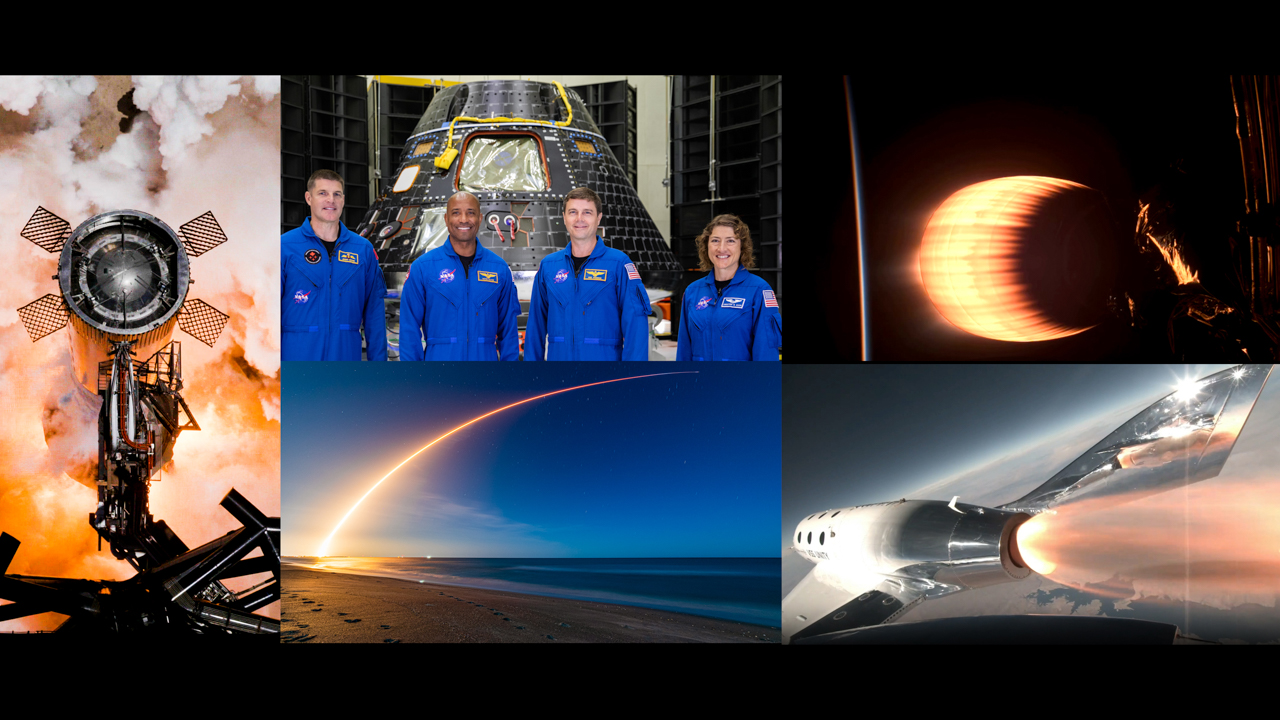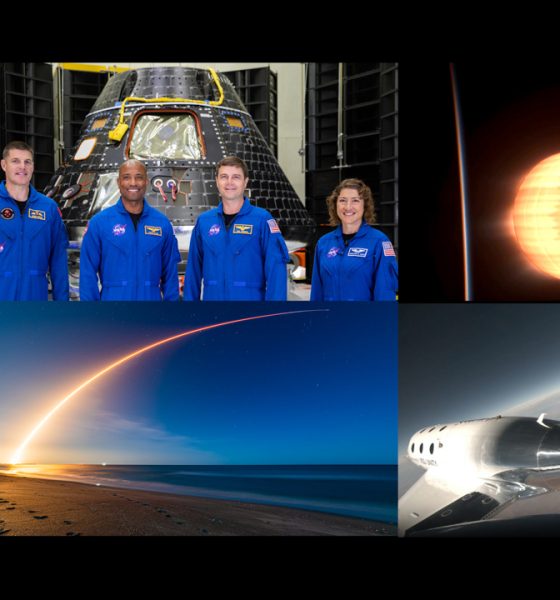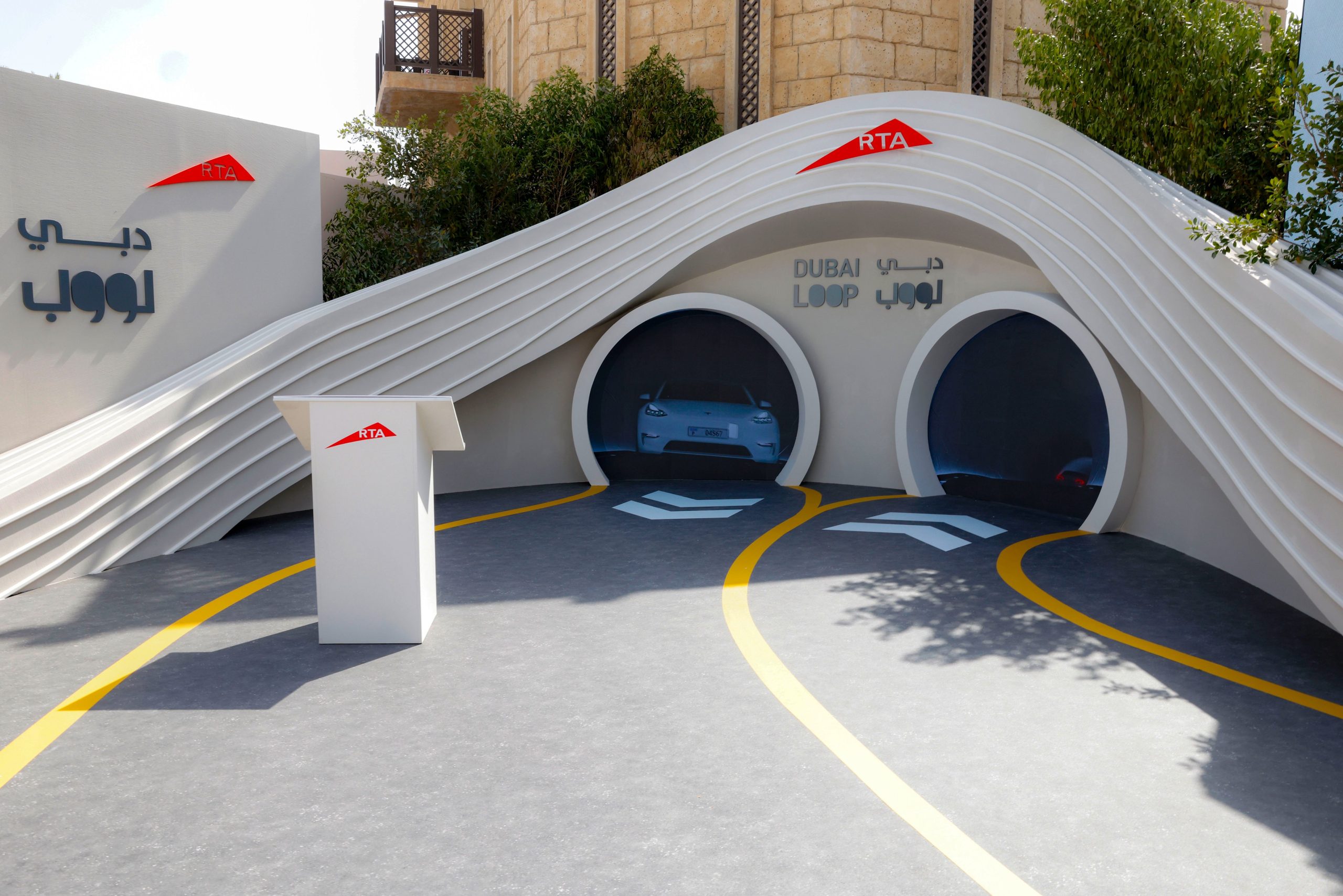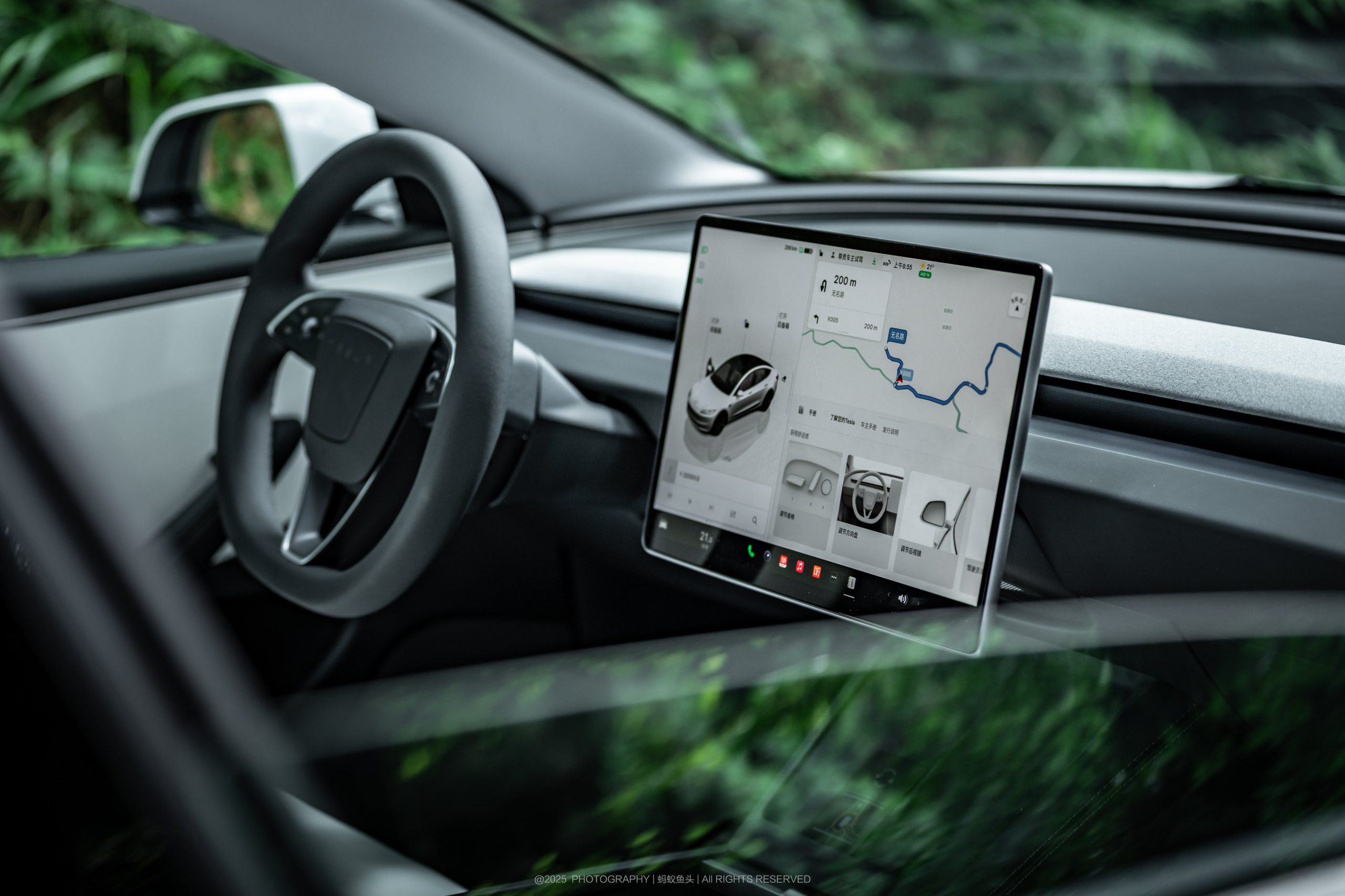

News
Weekly Space Recap: August 7 – August 13
Here are some of the stories you may have missed in the past week. The second week of August 2023 featured updates to Boeing’s delayed Starliner capsule, the Artemis II crew getting a look at their ride around the moon to SpaceX making more progress with the Starship program.
Boeing’s Starliner Delayed Further – More testing is in store for the long-delayed spacecraft as the company needs to verify the parachute system works as intended and finish removing a flammable tape that was inadvertently used on the capsule.
SpaceX continues Starlink launches – SpaceX launched 15 V2 mini Starlink satellites from California. The webcast featured beautiful views of Orbital Sunset as seen from the 2nd stage of the Falcon 9 as it completed its journey to space.
Booster 9 heads back to the production site – Following the first static fire test since the Integrated Test Flight, Booster 9 was removed from the Orbital Launch Mount and transported back to the production site for inspections and most likely engine swaps as 4 shut down early during the test.
Rocket Lab shares positive Q2 results – The company had a good Q2 and shared updates moving into Q3 and beyond, including additional launch contracts and updates on their new medium-lift rocket Neutron that will be a competitor with the Falcon 9 in the future.
We solved small launch with Electron. Now Neutron is taking shape to solve medium lift. #OpeningAccessToSpace pic.twitter.com/Pw9fn7v59j
— Rocket Lab (@RocketLab) August 10, 2023
Artemis II crew check out their ride around the Moon – The first crew to fly around the Moon in 50 years got a view of their ride, the Orion capsule, at NASA’s Kennedy Space Center. The capsule is currently still being tested and assembled. Their trip is currently planned for no earlier than November 2024.
Virgin Galactic completes first all-civilian flight – The VSS Unity carried three civilians to 88.5 km on a trip to space, depending on which definition you follow. The passengers were able to enjoy a few minutes of weightlessness before returning to their seats for the glide back to the ground.
Amazon to fly Kuiper prototypes on Atlas V – Originally meant to launch on the new United Launch Alliance Vulcan Centaur rocket, delays to that program have forced Amazon to switch to the Atlas V. Amazon had already bought multiple Atlas V launches. However, those were intended to fly many more satellites than just two prototypes.
SpaceX caps off week with another Starlink launch – SpaceX launched 22 V2 mini Starlinks from Cape Canaveral just after midnight, with Booster 1069 completing its 9th flight. This launch marked four launches in 8 days for the company before taking a small break.
Falcon 9 launches 22 @Starlink satellites to orbit from Florida pic.twitter.com/m8Y4p3VSoQ
— SpaceX (@SpaceX) August 11, 2023
This past week included a mix of good news and bad news, depending on which way you look at it. Hopefully, Boeing can get their program on track, as having two providers to send astronauts to the ISS is very important.
What do you think of the news that broke last week? Looking ahead to this week, SpaceX is at it again with more Starlink launches.
Thanks for reading the Weekly Space Recap!
Questions or comments? Shoot me an email at rangle@teslarati.com, or Tweet me @RDAnglePhoto.

Elon Musk
Elon Musk’s Boring Company signs deal to begin Dubai Loop project
The project marks the Boring Company’s first tunneling project outside the United States.

Elon Musk’s Boring Company has signed a definitive agreement with Dubai’s Roads and Transport Authority to begin implementing the Dubai Loop.
The project marks the Boring Company’s first tunneling project outside the United States.
The Boring Company signs Dubai Loop agreement
The Boring Company signed a partnership agreement with Dubai Roads and Transport Authority on the sidelines of the World Governments Summit 2026 to start the implementation of the Dubai Loop, as per the tunneling startup in a blog post.
The agreement was signed on behalf of Dubai RTA by Mattar Al Tayer, director general and chairman of the Board of Executive Directors, and on behalf of The Boring Company by James Fitzgerald, the startup’s global vice president of business development. Senior officials from both organizations were present at the signing ceremony.
The Dubai Loop project is intended to improve passenger mobility in high-density urban areas through underground vehicle tunnels designed for faster construction and lower surface disruption than conventional transport systems.
Pilot route and project scope outlined
The first phase of the Dubai Loop will consist of a 4-mile (6.4 km) pilot route with four stations linking the Dubai International Financial Centre and Dubai Mall. The pilot phase is expected to pave the way for a full network extending up to 14 miles (22.5 km) with 19 stations connecting the Dubai World Trade Centre, the financial district, and Business Bay.
The tunnels will have a diameter of 12 feet (3.6 meters) and will be dedicated to vehicle transport. Construction will rely on tunneling methods designed to reduce costs and minimize disruption to existing infrastructure.
The pilot phase is estimated to cost about $154 million, with delivery expected roughly one year after design work and preparatory activities are completed. The full Dubai Loop network is projected to cost approximately $545 million and would take around three years to implement.
Capacity targets and next steps
Mattar Al Tayer shared his excitement about the project, stating that the Loop system will be a qualitative addition to the city’s transportation system. “The project represents a qualitative addition to Dubai’s transport ecosystem, as it enhances integration between different mobility modes and provides flexible and efficient first- and last-mile solutions.
“Studies have demonstrated the project’s efficiency in terms of capacity and operating costs, with the pilot route expected to serve around 13,000 passengers per day, while the full route is projected to have a total capacity of approximately 30,000 passengers per day,” he said.
Steve Davis, president of The Boring Company, highlighted that the partnership aims to deliver safe and efficient tunneling solutions aligned with Dubai’s long-term mobility strategy.
“We are proud to partner with the Roads and Transport Authority, one of the world’s leading entities in adopting innovative solutions in the transport sector. Through this partnership, we look forward to delivering advanced, safe, and highly efficient tunnelling solutions that support Dubai’s vision for sustainable and future mobility,” Davis stated.
News
Tesla confirms Full Self-Driving still isn’t garnering interest from lagging competitors

Tesla executive Sendil Palani confirmed in a post on social media platform X that Full Self-Driving, despite being the most robust driver assistance program in the United States, still isn’t garnering any interest from lagging competitors.
Tesla has said on several occasions in the past that it has had discussions with a competing carmaker to license its Full Self-Driving suite. While it never confirmed which company it was, many pointed toward Ford as the one Tesla was holding dialogue with.
At the time, Ford CEO Jim Farley and Tesla CEO Elon Musk had a very cordial relationship.
Despite Tesla’s confirmation, which occurred during both the Q2 2023 and Q1 2024 Earnings Calls, no deal was ever reached. Whichever “major OEM” Tesla had talked to did not see the benefit. Even now, Tesla has not found that dance partner, despite leading every company in the U.S. in self-driving efforts by a considerable margin.
Elon Musk says Tesla Robotaxi launch will force companies to license Full Self-Driving
Palani seemed to confirm that Tesla still has not found any company that is remotely interested in licensing FSD, as he said on X that “despite our best efforts to share the technology,” the company has found that it “has not been proven to be easy.”
Licensing FSD has not proven to be easy, despite our best efforts to share the technology. https://t.co/VGYBU7Aduw
— Sendil Palani (@sendilpalani) February 3, 2026
The question came just after one Tesla fan on X asked whether Tesla would continue manufacturing vehicles.
Because Tesla continues to expand its lineup of Model Y, it has plans to build the Cybercab, and there is still an immediate need for passenger vehicles, there is no question that the company plans to continue scaling its production.
However, Palani’s response is interesting, especially considering that it was in response to the question of whether Tesla would keep building cars.
Perhaps if Tesla could license Full Self-Driving to enough companies for the right price, it could simply sell the suite to car companies that are building vehicles, eliminating the need for Tesla to build its own.
While it seems like a reach because of Tesla’s considerable fan base, which is one of the most loyal in the automotive industry, the company could eventually bail on manufacturing and gain an incredible valuation by simply unlocking self-driving for other manufacturers.
The big question regarding why Tesla can’t find another company to license FSD is simply, “Why?”
Do they think they can solve it themselves? Do they not find FSD as valuable or effective? Many of these same companies didn’t bat an eye when Tesla started developing EVs, only to find themselves years behind. This could be a continuing trend.
News
Tesla exec pleads for federal framework of autonomy to U.S. Senate Committee

Tesla executive Lars Moravy appeared today in front of the U.S. Senate Commerce Committee to highlight the importance of modernizing autonomy standards by establishing a federal framework that would reward innovation and keep the country on pace with foreign rivals.
Moravy, who is Tesla’s Vice President of Vehicle Engineering, strongly advocated for Congress to enact a national framework for autonomous vehicle development and deployment, replacing the current patchwork of state-by-state rules.
These rules have slowed progress and kept companies fighting tooth-and-nail with local legislators to operate self-driving projects in controlled areas.
Tesla already has a complete Robotaxi model, and it doesn’t depend on passenger count
Moravy said the new federal framework was essential for the U.S. to “maintain its position in global technological development and grow its advanced manufacturing capabilities.
He also said in a warning to the committee that outdated regulations and approval processes would “inhibit the industry’s ability to innovate,” which could potentially lead to falling behind China.
Being part of the company leading the charge in terms of autonomous vehicle development in the U.S., Moravy highlighted Tesla’s prowess through the development of the Full Self-Driving platform. Tesla vehicles with FSD engaged average 5.1 million miles before a major collision, which outpaces that of the human driver average of roughly 699,000 miles.
Moravy also highlighted the widely cited NHTSA statistic that states that roughly 94 percent of crashes stem from human error, positioning autonomous vehicles as a path to dramatically reduce fatalities and injuries.
🚨 Tesla VP of Vehicle Engineering, Lars Moravy, appeared today before the U.S. Senate Commerce Committee to discuss the importance of outlining an efficient framework for autonomous vehicles:
— TESLARATI (@Teslarati) February 4, 2026
Skeptics sometimes point to cybersecurity concerns within self-driving vehicles, which was something that was highlighted during the Senate Commerce Committee hearing, but Moravy said, “No one has ever been able to take over control of our vehicles.”
This level of security is thanks to a core-embedded central layer, which is inaccessible from external connections. Additionally, Tesla utilizes a dual cryptographic signature from two separate individuals, keeping security high.
Moravy also dove into Tesla’s commitment to inclusive mobility by stating, “We are committed with our future products and Robotaxis to provide accessible transportation to everyone.” This has been a major point of optimism for AVs because it could help the disabled, physically incapable, the elderly, and the blind have consistent transportation.
Overall, Moravy’s testimony blended urgency about geopolitical competition, especially China, with concrete safety statistics and a vision of the advantages autonomy could bring for everyone, not only in the U.S., but around the world, as well.








